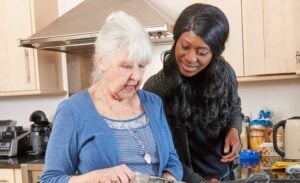What is at-home post-operative care?
Tags
24-Hour Care At Home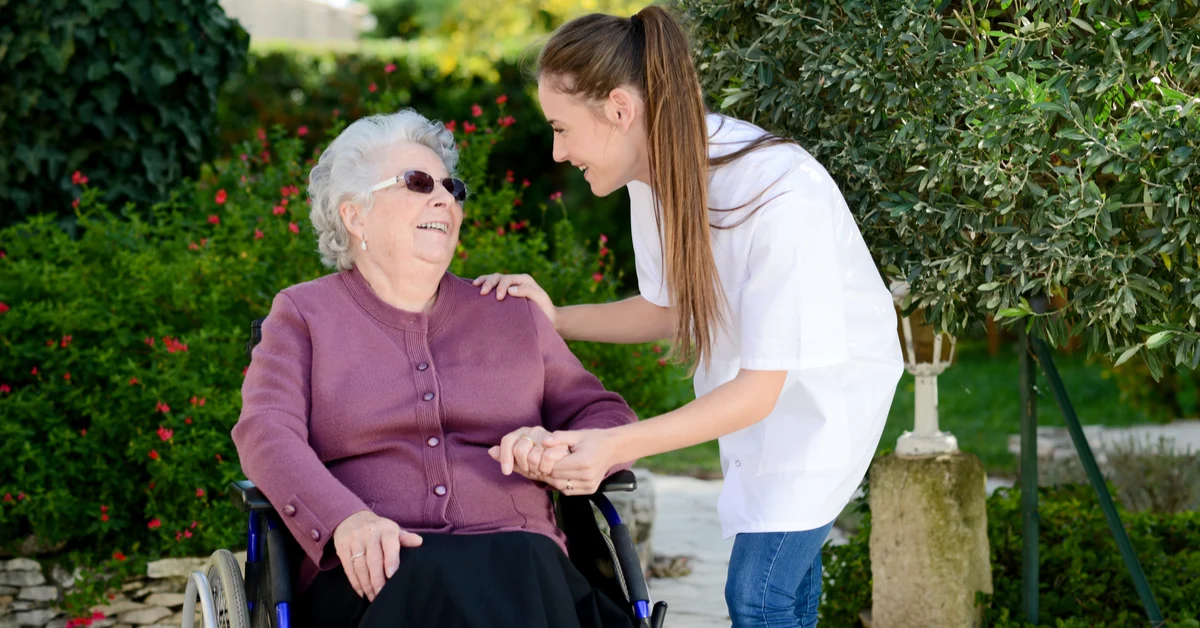
Post-operative care, also named convalescent care, is a crucial aspect of recovery following a surgical procedure. This specialised care is tailored to meet the unique needs of individuals in the aftermath of surgery, providing essential support and guidance during the recovery phase. Whether in a hospital, the familiar confines of one’s home, or a designated facility, post-operative care facilitates a smooth transition from the operating room to daily life. This comprehensive care encompasses various services, including pain management, wound care, physical therapy, medication management, and monitoring. Post-operative care ensures that individuals recover physically and receive the emotional and practical support for a successful and holistic recovery process.
Postoperative care begins immediately after surgery, continues throughout your hospital stay, and may continue after discharge. As part of your postoperative care, you should be provided information about your procedure’s potential side effects and complications.
Why is postoperative care at home important?
The concept of postoperative care at home is becoming increasingly valued and acknowledged for its several benefits compared with recovery in the hospital:
Comfort and Familiarity: Recovering in the comfort of your own home, surrounded by familiar surroundings, can significantly reduce stress and anxiety, which, in turn, facilitates the recovery process. It can also mean a person can get back to some of their normal activities too, such as reading in their favourite chair or watching their favourite television programme. Hospitals are busy places with lots of people, can be noisy, bright lights, sharing bathroom facilities with strangers can all make it hard to relax and recover.
There’s a decreased risk of infections when you’re at home.
When there are more people around, the chance of infection, and when you’re sick, your resistance to bacterial or fungal infections, such as urinary tract infections or pneumonia, will likely be reduced.
Personalised Care
At-home recovery allows for a personalised and individualised approach to rehabilitation. Family members can actively participate in caregiving, offering emotional support outside of set hospital visiting hours, assisting with daily activities, and preparing favourite meals and snacks.
Resting easier
Sleep is essential for the body to heal and recover, especially after a serious injury or illness. However, hospitals can be noisy and disruptive, leading to long-term sleep deprivation that can hinder recovery. Therefore, it’s beneficial to return to your bed at home as soon as possible.
Better mental health
Being in your normal surroundings, with support from loved ones, family, and friends, can positively impact mental wellbeing. When someone is seriously ill, hospitals provide the necessary care. However, once a patient’s condition stabilises, they often experience better and faster recovery at home with the appropriate support.
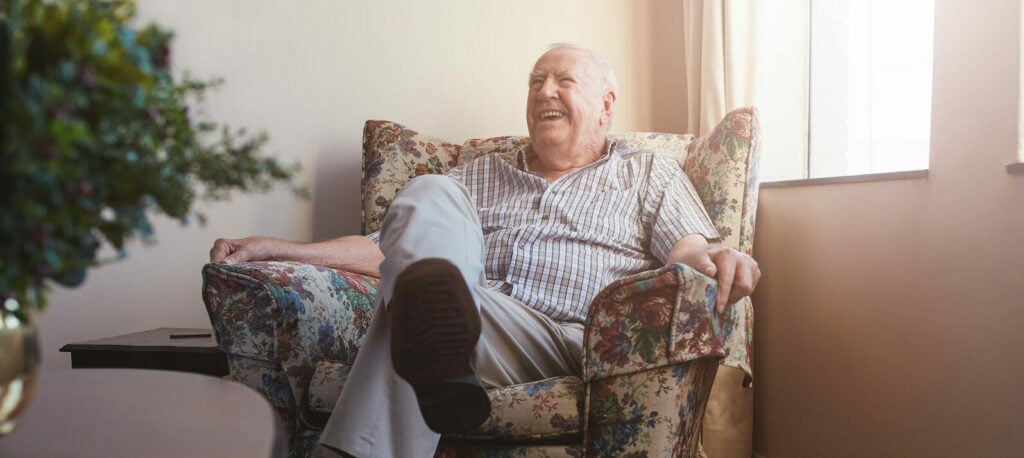
What are the types of postoperative care?
Postoperative care encompasses many services, and the level of care a person receives will be tailored to meet their unique needs and recovery goals. It can depend on the nature and complexity of your surgery and your individual health requirements. The following are commonly included in postoperative care
Wound care: Proper management and maintenance of the surgical wound are paramount. This may involve changing dressings, applying topical treatments, or vigilantly monitoring for any signs of infection.
Pain management: Pain control is a significant aspect of postoperative care. Your healthcare provider will prescribe effective pain relief and provide guidance on their appropriate use to ensure your comfort.
Physical therapy: Some surgeries necessitate physical therapy to regain strength, mobility, and functionality. With the guidance of a physiotherapist, you can perform these exercises at home.
Medication management: It’s essential to adhere to the prescribed medication regimen to support your recovery by following the medication schedule and guidelines that you’ve been informed of.
Nutrition and hydration: Consuming a balanced diet and staying hydrated are critical to your healing process. Depending on the nature of your surgery, specific dietary considerations may be needed.
Monitoring vital signs: Regular monitoring of vital signs, such as blood pressure, heart rate, and temperature, may be necessary to ensure that you are progressing well and that there are no unexpected complications.
Emotional support: Emotional well-being is just as significant as physical health. Family and friends can provide invaluable emotional support, improving your overall recovery and mental well-being.
A team to help with the above post-operative care may include:
a nurse
an occupational therapist
a physiotherapist
a speech and language therapist
a social worker
doctors
Carers (please note live-in carers who are on Elder’s platforn cannot provide pain management, wound care, physical therapy or monitoring vital signs)
Postoperative Hospital Care
After surgery, patients may need to stay in the recovery room for a certain period. During this time, they receive care from medical staff and peri-operative nurses. Following instructions, patients may be asked to stand up and take a few steps. Deep breathing exercises and forced coughing may be recommended to prevent respiratory problems. Doctors also monitor for bleeding, infection, skin abnormalities, and allergies caused by anaesthesia.
The medical team provides guidance and care, including monitoring vitals and checking the surgical wound. Family members can observe and learn how to support their loved ones with walking, sitting, hygiene, and positioning.
Patients are encouraged and reminded of the importance of moving after surgery, as staying in bed for too long increases the risk of blood clots.
Medical staff should monitor vital signs at regular intervals after the patient is discharged from the recovery room, with the frequency adjusted based on the patient’s condition.
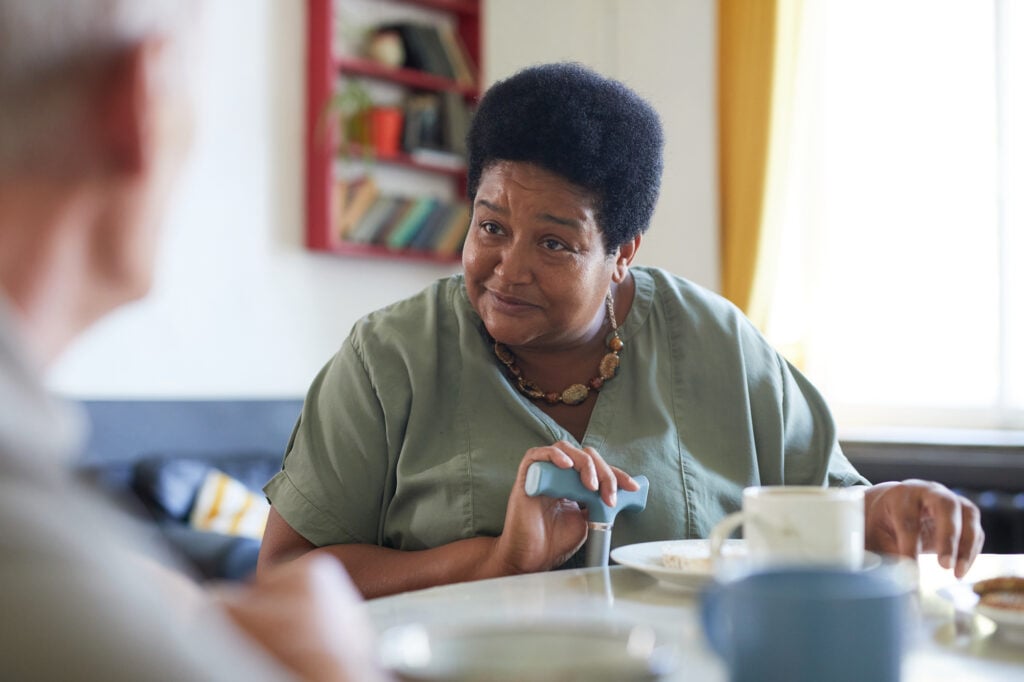
Post-operative care in a care home
It can be an option to stay in a convalescent care home, especially when regular assistance from care staff, doctors, and nurses is needed, but not to the extent of being in a hospital. Similar to nursing homes, convalescent homes are operated by trained medical professionals who offer a comfortable setting, including provisions for food, lodging, medications, and therapeutic services. Convalescent care provides assistance with daily activities, rehabilitation, medication management, and medical monitoring. Its goal is to help patients regain strength, independence, and overall wellness during their recovery.
Convalescent care homes are designed for patients who need a higher level of support and assistance than can be provided at home. It’s commonly recommended for people who’ve undergone major surgeries, experienced debilitating illnesses, or suffered from severe injuries.
Postoperative Home Care
After being discharged from the hospital or convalescent home, patients should receive on-going care in their own home that helps support their continued recovery. This could be from family or a professional carer, and may involve offering reminders to take prescribed medications, monitoring for potential complications, following dietary recommendations, helping them to attend scheduled appointments, and participating in recommended physical activity.
The postoperative period can be challenging for the patient and their family. It requires high medical expertise and preparedness to address any complications or side effects. It’s recommended to have medical professionals handle this while providing comfort and support to your loved one.
Questions to ask before you leave the hospital
Before leaving hospital, it’s important to ask any questions relating to your recovery:
- Who do I speak to if I have any concerns about my health once I’m home?
- What should I try to do independently, and what should I do with assistance? e.g. washing, making meals, walking
- What activities should I avoid? And for how long?
- How long do I need to be off work?
- What level of pain and bruising is normal?
- Will my stitches be removed?
- Do I need a post-op follow-up at the hospital?
How to get ready for your recovery at home
The success of an at-home postoperative care plan largely hinges on thorough preparation. Here are some of the steps you can take to support a smooth recovery at home –
Plan Ahead
Before your surgery, make any necessary preparations at home. Ensure you have an ample supply of groceries (and ready meals in the freezer if necessary, as these can be prepared easily – a Meals on wheels service may be beneficial), tidy up your living space, and procure any required medical supplies.
Move things downstairs if needed –
If you’re going to be less mobile after surgery, consider moving furniture to a more suitable place and set a bed up downstairs for while you’re recovering.
Arrange support
Reach out to family members or close friends who can assist with daily tasks and emotional support during your recovery. Having a reliable support system in place is invaluable, and often the hospital will advise you to have someone with you for the first 24 hours. It can be helpful to have someone agree to pick you up, or who can help you arrange a taxi from the hospital too. Sometimes people are given an earlier discharge than expected, so having a couple of travel options can help bring peace of mind.
Be clear on medical instructions
Adherence to your healthcare provider’s postoperative instructions is paramount. This includes ensuring you can follow the prescribed medication regimen and understand any adverse side effects, know your wound care protocols, and any specific guidelines that pertain to your surgery and recovery.
Stay in touch
Maintain open and regular lines of communication with your healthcare team. Should you experience any concerns or observe changes in your condition, you must report them promptly to your healthcare provider. They can offer guidance and adjustments to your care plan as needed.
Keep records
Maintaining detailed records during your recovery is an important habit. Record your symptoms, medication schedule, and any concerns you may have. These records are a reference for tracking your progress and identifying potential issues or improvements.
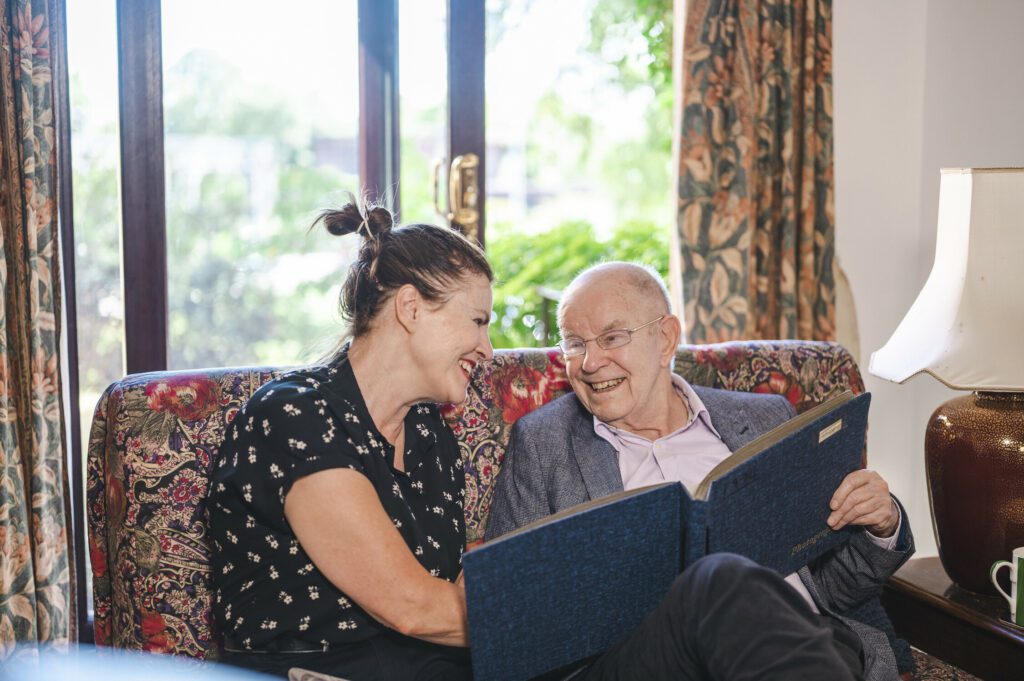
How can Elder help with postoperative care?
1) Give us a call, once our care advisors know enough about you or a loved one, our clinical team may be able to liaise with the hospital discharge planning team or your local social services to check the progress of any care needs assessment and understand whether the support of an Elder-approved carer would be suitable.
2) If you’re new to the care world, our care advisors can help you understand more about the different types of funding available. You can also try our free online funding calculator tool to find out whether it’s likely you’re going to be eligible.
3) If a live-in carer is suitable for your needs, we’ll work to find you the perfect matched carer with 24-48 hours. Even if live-in care isn’t deemed the best solution, that’s okay, we can still speak to the NHS about the different options available and help find the best outcome for your family. In fact, we have trusted partnerships with several national nursing care and care home providers – and can put you in direct contact with a provider better suited to your requirements or preferences.
Benefits of a live-in carer during at-home postoperative care
While the self-employed live-in carers we work with cannot administer medication, dress and tend to wounds, they can be on hand to manage the following daily tasks and provide essential support to you and your family during the postoperative period. –
- Companionship to help reduce loneliness.
- Daily tasks in the home are taken care of so your loved one can relax and focus on their recovery.
- Help with personal care, such as washing, that may be difficult in the first days or weeks.
- Someone to support and encourage movement for better recovery
- A person there to make healthy meals
- Reporting any incidents and changes in behaviour.
- With postoperative live-in care at home arranged, your loved one may also be discharged sooner from the hospital.
- We match only the best-suited carer to your loved one and your family’s individual needs, routines and personalities.
- A live-in carer can help get you or your loved one to postoperative follow-up appointments.
Learn more about live-in care
Take a look at more Elder guides on the benefits of live-in care.
